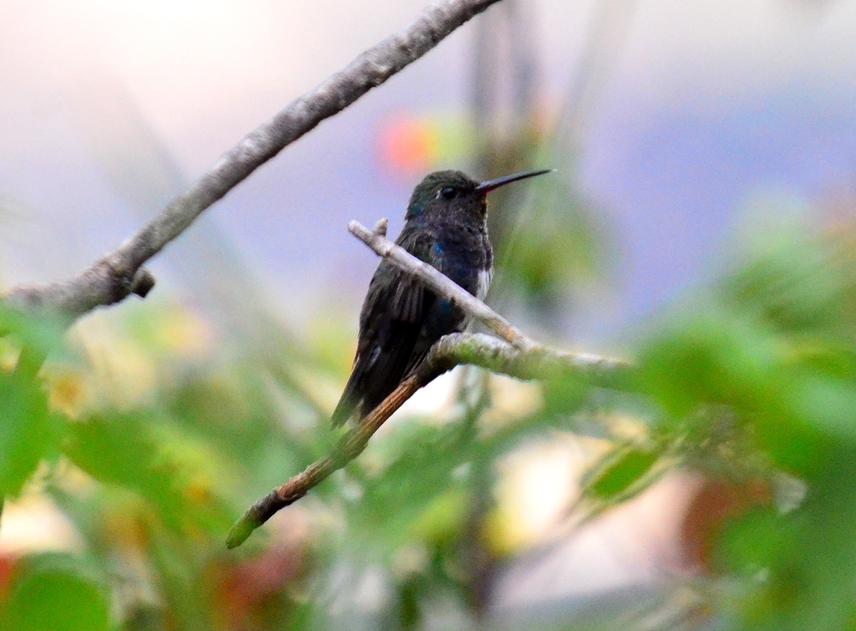Paulo Ricardo Siqueira
We are aiming in this study:
1) investigate distinct responses of ecological functions (insect predation and frugivory) provided by birds in relation to habitat loss and fragmentation at the local and regional scales;
2) verify if habitat loss and fragmentation produce high turnover of bird’s function and change their provision of ecosystem services;
3) develop environmental education activities with local communities, mainly with children, to show the importance of bird’s conservation for the maintenance of ecosystem services.

Sapphire-spangled Emerald, Chionomesa lactea.
Previous studies have pointed out the negative effects of habitat loss and fragmentation on biodiversity and ecological functions. These effects can lead to changes in community dynamics and ecological functions. However, those changes may not be congruent, hence they can show distinct responses to environmental change levels. Although there are many studies evaluating functional ecology, few address the synergism in responses of different ecological functions as well as the intensity of functional changes at different spatial scales of the landscape.
Atlantic rainforest and bird group are good tools for studying the effects of habitat loss and fragmentation. Atlantic rainforest especially for show high fragmentation levels and fragments of different sizes. Bird group because it shows a large number of threatened and sensitive species to changes in habitat. In addition, as they are charismatic species for humans, the chances of interest for conservation increase. The study will be developed in the Espinhaço mountain range, Minas Gerais state, Brazil. To access bird ecological functions, we will sample bird abundance and richness data through points count method, associated with morphological and behavioural traits of data published in the scientific literature. We will use artificial caterpillars and fruits modeled by non-toxic mass to evaluate synergisms in insect predation and frugivory by bird. Besides, we will develop environmental education activities, which expose the importance of ecosystem functions and bird species in the provision of ecosystem services, as well as measures of how we can conserve them.
Therefore, our study has two main conservation outputs: 1) to produce the data showing the negative effect of natural resources overuse on ecosystem functions, and also the response’s estimate of the ecosystem functions to these effects that need to be preserved to maintain the bird functions available; 2) environmental education study that are important initiatives to empower environmentally responsible actions in addition to being regarded predictors and vital determinants of behaviour.